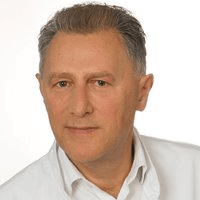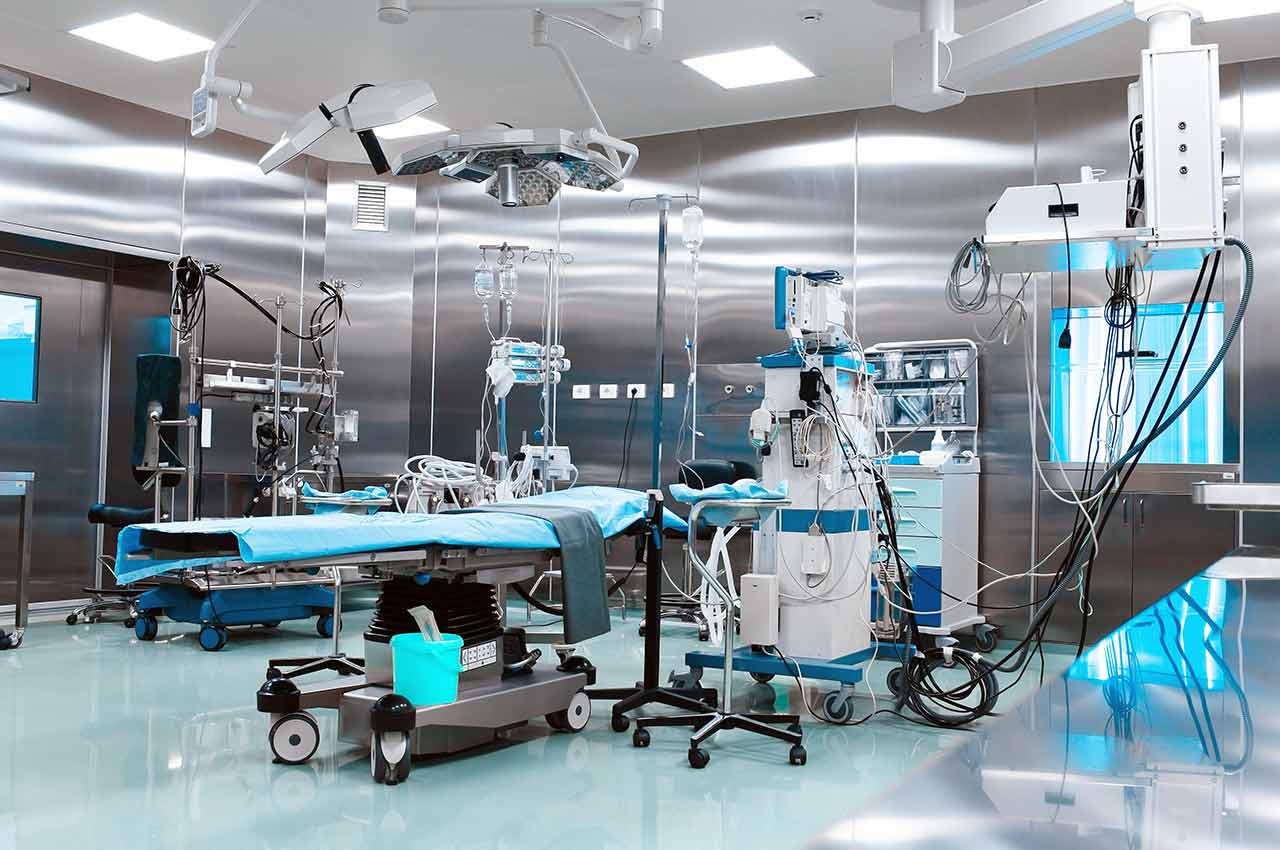
About the Department of Cardiology at Park-Clinic Weissensee Berlin
The Department of Cardiology at the Park-Clinic Weissensee Berlin offers all the options of modern diagnostics and treatment for cardiovascular diseases. Of particular interest to the specialists is the provision of medical care to patients with arterial hypertension, coronary heart disease, heart attack, heart failure, cardiac arrhythmias, and heart defects. The department has an advanced Cardiac Catheterization Laboratory, which performs many diagnostic and therapeutic procedures. The very latest invasive and non-invasive treatment methods are used in clinical practice. Medical care is provided both on an inpatient and outpatient basis. The Chest Pain Unit is open 24/7. The department's doctors are exceptional professionals in their field of competence and make sure that each patient receives the most effective treatment.
The department is headed by Dr. med. Richard Stern. The specialist has the status of one of the leading cardiologists in Germany and has vast clinical experience, including in the treatment of particularly complex cases.
The department's team of doctors is convinced that a comprehensive examination using modern diagnostic methods plays a crucial role in the success of treatment. Echocardiography (at rest and stress), electrocardiography, cardiac CT and MRI, Holter monitoring, electrophysiological tests, long-term blood pressure measurement, coronary angiography, and other tests are carried out here. A decision on the necessary therapeutic measures is made based on the results obtained. Doctors may opt for drug therapy, catheterization, or a combination of these methods.
The specialists of the advanced Cardiac Catheterization Laboratory are engaged in the interventional treatment of heart diseases. About 50% of interventional procedures are performed for stent implantation and balloon dilatation of the coronary arteries. The team of cardiologists also performs interventions to close a ventricular septal defect, an atrial appendage defect, and a patent foramen ovale. Drugs are often sufficient to treat cardiac arrhythmias, but, in some cases, interventional treatment such as the implantation of pacemakers, defibrillators, and cardiac resynchronization therapy may be required. Catheter-based interventions are performed under local anesthesia and with sedation, if necessary. As a rule, an approach is achieved by puncturing the radial artery at the wrist. In some cases, preference is given to a puncture in the inguinal artery.
The department successfully performs interventional treatment of valvular heart diseases. For this purpose, doctors use transcatheter aortic valve implantation (TAVI) and the MitraClip procedure. These procedures are the most modern treatment methods for aortic valve stenosis and mitral regurgitation. Both therapeutic manipulations are highly effective while virtually eliminating risks to the patient's health. The procedures are of particular value for treating elderly patients and patients with concomitant diseases.
The department's key clinical focuses include:
- Diagnostics and treatment of coronary artery disease
- Diagnostics and treatment of heart failure
- Diagnostics and treatment of heart valve diseases: aortic valve stenosis and mitral regurgitation
- Diagnostics and treatment of heart defects: atrial septal defect, atrial appendage defect and patent foramen ovale
- Diagnostics and treatment of arrhythmias
- Diagnostics and treatment of arterial hypertension
- Diagnostics and treatment of other cardiovascular diseases
The department's range of diagnostic and therapeutic services includes:
- Diagnostics
- Non-invasive examinations
- Electrocardiography (ECG)
- 24-hour ECG monitoring
- Classical echocardiography, rest and stress echocardiography, transesophageal echocardiography
- Electrophysiological studies
- 24-hour blood pressure monitoring
- Invasive examinations
- Right and left heart catheterization
- Coronary angiography
- Imaging tests
- Cardiac CT
- Cardiac MRI
- Non-invasive examinations
- Treatment
- Conservative treatment
- Drug therapy
- Interventional catheterization
- Pacemaker and defibrillator implantation
- Cardiac resynchronization therapy
- Stent implantation and balloon dilatation for stenosis and obstructive coronary artery disease
- Recanalization of chronic coronary artery occlusions
- Atrial septal defect closure
- Patent foramen ovale closure
- Atrial appendage closure
- Transcatheter aortic valve implantation (TAVI)
- MitraClip procedure
- Conservative treatment
- Other medical services
Curriculum vitae
Higher Education
- 1977 - 1984 Human Medicine studies at the Free University of Berlin.
- 1981 - 1984 Experimental thesis at the Institute for Toxicology and Embryonic Pharmacology.
Professional Career
- 1985 - 1989 Assistant Physician at the Berlin Jewish Hospital, Department of Internal Medicine, and Department of Radiography and Nuclear Medicine.
- 1989 - 1996 Assistant Physician, Department of Cardiology and Pulmonology, Charite University Hospital Berlin, Campus Benjamin Franklin.
- 1993 Board certification in Internal Medicine.
- 1996 Board certification in Cardiology.
- 1996 - 1997 Senior Physician, Department of Internal Medicine, Martin Luther Hospital Berlin.
- 1997 - 2005 Deputy Head of the Department and Managing Senior Physician of the Department of Cardiology and Intensive Care, Vivantes Am Urban Hospital and Vivantes Friedrichshain Hospital, Berlin.
- 2005 - 2012 Medical Director of the Heart Failure Center at the Jewish Hospital Berlin.
- Since 2013 Head Physician of the Department of Cardiology at the Hospital Schlosspark Berlin.
- Since 2016 Head Physician of the Department of Cardiology at the Park-Clinic Weissensee Berlin.
Memberships in Professional Societies
- German Cardiac Society.
- Berlin Society for the Prevention and Rehabilitation of Cardiovascular Diseases.
- European Society of Cardiology.
Photo of the doctor: (c) Park-Klinik Weißensee GmbH





